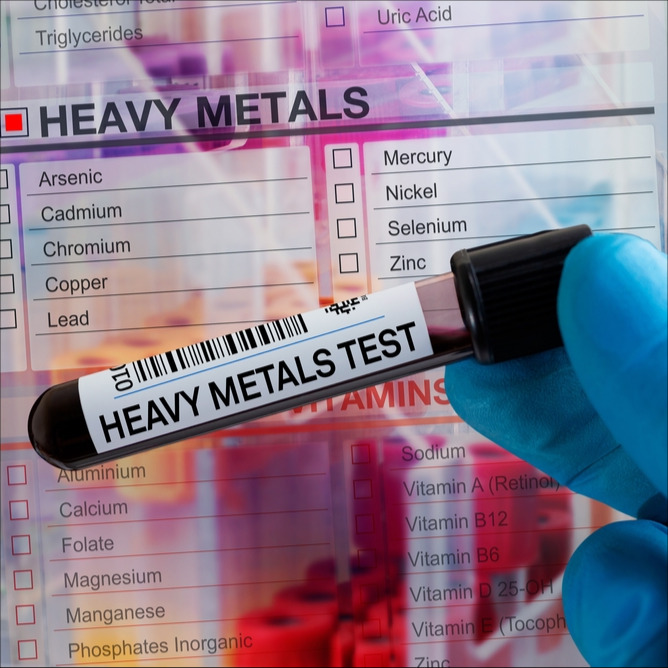
Heavy metals detox
Heavy metals and their effects on health: what you need to know
Heavy metals are all around us these days , both in the air we breathe and in the water we drink, and in many of the products we use every day.
Although some heavy metals are essential for our bodies in small amounts, they can cause serious health problems in higher concentrations.
In this blog post, we want to take a closer look at the risks that heavy metals pose to health and what you can do to protect yourself and your family.
What are heavy metals?
Heavy metals are a group of metals and metalloids, which have a high density and are potentially toxic to humans and the environment .
the best-known heavy metals include lead, mercury, cadmium and arsenic, but copper, zinc and iron can also be problematic in high concentrations.
Health risks from heavy metals
The effects of heavy metals on health can vary depending on the type of metal, the duration of exposure and individual sensitivity.
In general, however, heavy metals can cause the following health problems:
- Neurological damage: Heavy metals such as lead and mercury are neurotoxic and can damage the nervous system, which can lead to cognitive impairment, memory loss and even autism in children.
- Kidney damage: Metals such as cadmium and mercury can damage the kidneys and lead to impaired kidney function .
- Bone problems: Lead can accumulate in the bones and lead to weakening and increased susceptibility to fractures.
- Cardiovascular disease: Some studies have shown that high lead exposure can increase the risk of high blood pressure and cardiovascular disease.
- Cancer: Heavy metals such as arsenic and cadmium are known to be carcinogenic and can increase the risk of various types of cancer .
How do heavy metals enter the body?
Heavy metals can enter the human body in various ways:
- Food: Many heavy metals enter our bodies via contaminated food. Fish, for example, can contain high levels of mercury, while rice is often contaminated with arsenic.
- Water: Our drinking water can also be contaminated with heavy metals, especially in areas with high industrial pollution or natural occurrences of certain metals.
- Air: The inhalation of polluted air is another important source of exposure, especially in the vicinity of industrial plants or in cities with high traffic volumes.
- Products: Everyday products such as cosmetics, toys and electronics can also contain heavy metals and lead to exposure .
How can you protect yourself?
- Diet: Make sure you eat a balanced and healthy diet. Avoid eating food that is known to be contaminated with heavy metals and favour organic products.
- Water filter: Use a water filter to remove heavy metals from your drinking water.
- Air purifier: In polluted areas, an air purifier can help improve the air quality in your home.
- Check products: When buying products, check their ingredients and avoid those with known heavy metal contamination.
- Tests: If you suspect that you are exposed to high levels of heavy metals, a doctor can carry out tests to measure your exposure and initiate detoxification if necessary.
Conclusion
Although heavy metals are a natural part of our environment , in high concentrations they can lead to serious health problems .
it is important to be aware of the potential sources of heavy metal pollution and to take measures to minimise exposure.
By taking conscious action, you can reduce the risk to yourself and your family and contribute to a healthier life.
Become a member now
As a member, you will receive further information and frequencies on this topic! Log in here!
